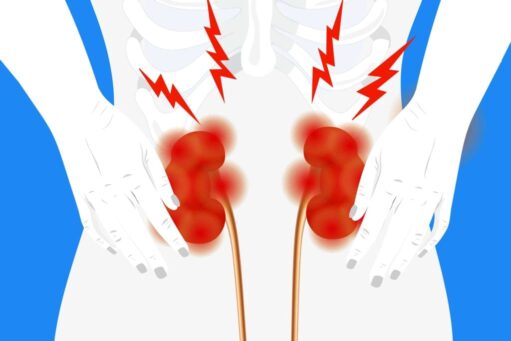HEALTH BLOGS BY FITBYNET
Indicators within your body signaling kidney dysfunction
High blood pressure
The kidneys play a vital role in regulating blood pressure. However, when the kidneys fail to function properly, they can contribute to elevated blood pressure levels by releasing specific hormones or causing the retention of salt and water in the body. This, in turn, can create a harmful cycle where high blood pressure negatively affects the kidneys, becoming a prominent cause of kidney failure. As stated by Cleveland Clinic, the interplay between kidney
Swelling in your face and feet, puffiness around your eyes
The primary role of the kidneys is to eliminate toxins and waste products from the body. However, when the kidneys fail to function efficiently, it can disrupt this process, leading to the accumulation of toxins and impurities. Additionally, excess water and salt may accumulate in the body tissues. These effects can manifest as facial swelling, edema in the feet, and puffiness around the eyes.
Extreme fatigue
In addition, the kidneys play a role in the production of red blood cells. Insufficient production of red blood cells, known as anemia, can occur when the kidneys are impaired. This condition disrupts the delivery of oxygen and nutrients to the brain and muscles, leading to feelings of extreme tiredness and fatigue. The kidneys’ involvement in red blood cell production highlights their significance in maintaining overall bodily function and well-being.
Dry and Itchy skin
Having itchy, dry skin can be a sign of kidney disease. It is indicative of an imbalance of minerals and nutrients in the blood. It could also be due to a sudden rise in the blood levels of phosphorus.
Changes in urination
When the kidneys are unhealthy, they can disrupt normal urination patterns and introduce changes. Typically, the kidneys filter blood to produce urine, eliminating waste from the body. However, impaired kidney function can result in irregularities within the urinary system. Some individuals may encounter frequent urination, while others may observe the presence of blood in their urine. Additionally, the presence of foamy and bubble-filled urine can also serve as an indication of kidney issues. These urinary abnormalities can serve as signs of potential kidney trouble and should be addressed promptly.
Breathlessness
The kidneys play a crucial role in maintaining fluid balance within our bodies. However, when kidney problems arise, fluid can accumulate in the lungs, resulting in shortness of breath. This condition, known as fluid overload or hypervolemia, may also cause chest pain, which can sometimes be mistaken for other health conditions. It’s important to note that breathlessness is not exclusive to kidney-related issues but can also be associated with various cardiovascular risks. While some individuals may attempt to manage breathlessness without seeking medical intervention, it is essential not to disregard frequent occurrences of this symptom. Seeking appropriate medical attention is advisable to determine the underlying cause and address any potential health concerns.
What is the solution?
The National Institute of Diabetes and Digestive and Kidney Diseases (NIDDKD) suggests various ways to promote kidney health. These include opting for healthier food options, engaging in regular physical activity, maintaining an ideal weight, ensuring sufficient sleep, giving up smoking, moderating alcohol consumption, effectively managing diabetes and high blood pressure, and minimizing stress levels.

